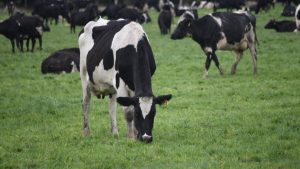
The plan, drawn up by a key cattle industry player with direct working knowledge of the Indonesian cattle industry, would see all the estimated 1.35 million cattle, sheep, pigs and goats fully vaccinated on the Indonesian holiday island within a year.
But the proposal is yet to be presented to Agriculture Minister Murray Watt and has drawn mixed reactions from industry bodies
The plan and budget has been developed by industry stalwart and current Queensland Livestock Exporters Association president Greg Pankhurst.
Mr Pankhurst, who co-owned two Indonesian feedlots for almost two decades, calculated the cost of the four-vaccine program, which would involve 50 vaccination teams and support resources. The plan covers everything from renting office space to airfares to guards, fuel for vehicles and even an incentive for some Balinese farmers to encourage vaccination.
Indonesian-based veterinarian Dr Ross Ainsworth said the proposed vaccination plan “showed the back of the envelope cost is in the order of $32 million” and that Mr Pankhurst had worked on it “given the apparent lack of a coherent plan”
“Assuming this was accepted by the Indonesian government, it has the potential to bring the risk of FMD transmission from Bali to Australia from red hot to minimal, just like the rest of Asia,” said Dr Ainsworth, the author of the South East Asian Beef Market Report.
Dr Ainsworth said the risk of FMD coming into Australia was “getting higher and higher”.
“With minimal vaccination in Bali, the risk of transmission is high and rising,” he said.
“Rome is burning and the fire is in the neighbour’s house. Australia needs to do more to protect itself from the FMD wildfire.
“I don’t doubt that our government is trying but I also expect that the Indonesian Government simply doesn’t have the same level of urgency.”
Both the wool and the meat industries have significant industry funds which supporters say could fund the vaccination plan.
Australian Wool Innovation currently holds $85 million in reserves while Meat and Livestock Australia has a similar amount and spent more than $280 million in 2020/21 on research, development and marketing.
AWI chief executive John Roberts said the organisation “continues to invest with governments and other organisations involved in the livestock industry to help prevent the spread of FMD”.
“AWI is willing to play its part in tackling this threat and is happy to consider proposals from industry that have the support of veterinary authorities from the Commonwealth and state governments”.
MLA was more guarded, with a spokesman telling The Weekly Times the organisation “is working with the Federal Government to best direct resources into vaccine support that are aligned with the Indonesian government priorities”.
National Farmers’ Federation chief executive Tony Mahar said the plan had not been presented to its organisation but they would “support actions that focus response efforts on areas of highest risk and need” but at the same time, respected Indonesia as a sovereign nation.
“The NFF has welcomed efforts from the Australian Government to offer technical, vaccine and other support measures to Indonesia,” Mr Mahar said.
“Industry, too, is working hard to support our regional partners, with organisations such as MLA building on longstanding partnerships to offer support programs during this period.”
Mr Mahar said the NFF had welcomed the ramping up in biosecurity measures, but “we do want them to go further”.
“This means 100 per cent screening of passengers returning from Indonesia and high-risk areas, more front-line biosecurity officers, and constant review of physical and technological screening methods.” he said.
“We will not lay down on our call for long term sustainable biosecurity funding, as well as the finalisation of the National Biosecurity Strategy.”
A spokesman for Senator Watt said the Federal Government was already supporting the Indonesian Government’s vaccine program by investing $1.5 million to deliver at least one million vaccinations along with technical and logistics assistance to assist with its ongoing work.
“We are listening to, and working with industry on practical measures and will continue to do so,” the spokesman said.
Official Indonesian government data showed there were 554 cases of livestock infected with FMD in Bali last week with 27,480 animals vaccinated against the disease. This represents less than 2 per cent of all the cattle, sheep and pigs estimated to be on the holiday island.
But on Monday, the Indonesian Government told media the outbreak on Bali was now under control.
Meanwhile, a traveller was last week pinged for bringing beef and pork into Australia from Indonesia. A sniffer dog identified the products in the traveller’s backpack and he was fined more than $2000 and the food — two Sausage and Egg McMuffins and a ham croissant — are now being tested for traces of FMD.

























